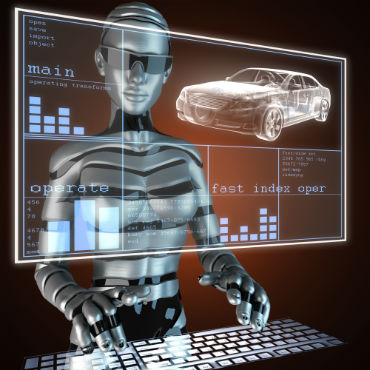Is it time to regulate the automotive Internet?
Despite sensational media reports about cyber vulnerabilities, Congress and federal officials appear to be in the slow lane when it comes to regulating connected cars.

If cybersecurity in cars is such a big issue, why aren't more cars being hacked?
Several well-publicized media reports, including a story in Wired of the remote takeover of a car's entire operating system by hackers, have raised alarms with lawmakers and regulators. But the nature and extent of those cybersecurity risks are still not clear.
"Is the overall security of vehicles' computers that good or have we just been that lucky?" asked Rep. Tammy Duckworth (D-Ill.) at a Nov. 18 joint hearing of the House Oversight and Government Reform Committee's Information Technology Subcommittee and Transportation and Public Assets Subcommittee.
Sandy Lobenstein, Toyota's vice president of connected services, said that if there are real threats, automakers can address them without automotive-specific rules for cybersecurity.
"The truth is that industry can move quicker than the government to update or modify out-of-date practices or adjust to new or emerging threats," Lobenstein said.
Nathaniel Beuse, associate administrator for vehicle safety research at the National Highway Traffic Safety Administration, said simple regulation and enforcement will not suffice at at time when cybersecurity threats evolve quickly, and he stressed the need for more government/industry collaboration.
He added that NHSTA established the Automotive Information Sharing and Analysis Center (ISAC) to allow participating automakers to work with the National Institute of Standards and Technology on exchanging cybersecurity data and stay abreast of the latest vehicle hacking threats.
"The auto industry can play an essential role...by working closely with government and independent security analysts to identify and defeat attacks," Beuse said.
However, Khaliah Barnes, associate director of the Electronic Privacy Information Center, warned that without regulation, connected cars could be vulnerable to hackers.
She urged Congress to enact legislation that would give NHTSA ultimate rulemaking authority over privacy best practices and establish civil fines for those who maliciously hack vehicles. She praised two pieces of legislation introduced in Congress this year that would require regulators to develop cybersecurity standards for vehicles.
"There is a new danger to American drivers and the auto industry that can no longer be ignored," Barnes said.
Lawmakers applauded the creation of the Automotive ISAC but argued that there is a need for a set of cybersecurity standards for automakers and their suppliers to prevent hacking and protect driver privacy and safety.
According to John Mica (R-Fla.), chairman of the Transportation and Public Assets Subcommittee, NHTSA has delayed creating such standards despite congressional directives.
Mica pointed to the Moving Ahead for Progress in the 21st Century Act, a 2012 transportation spending bill that included a provision requiring NHTSA to develop safety standards for vehicles' electronic systems within two years.
Beuse said officials have prepared a draft report, including standards, but it is still under review.





